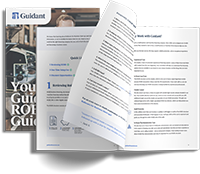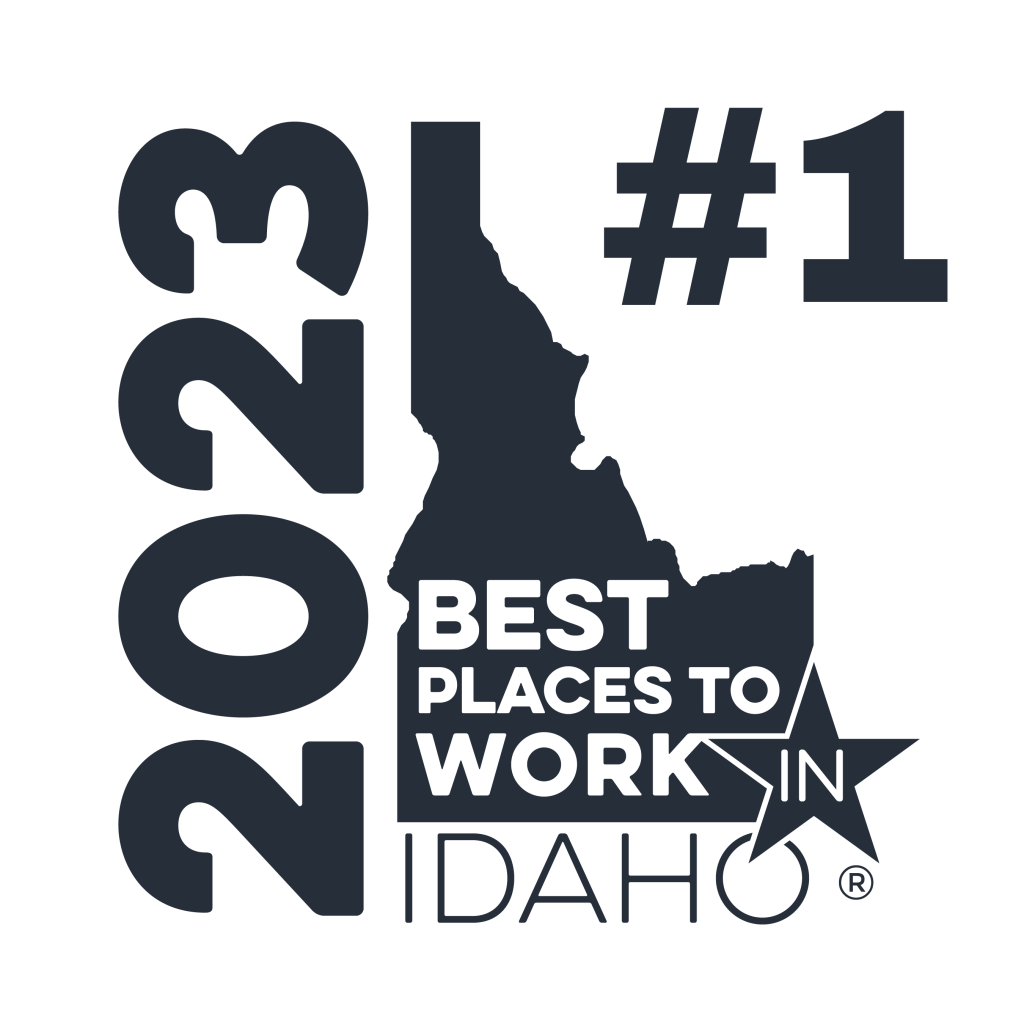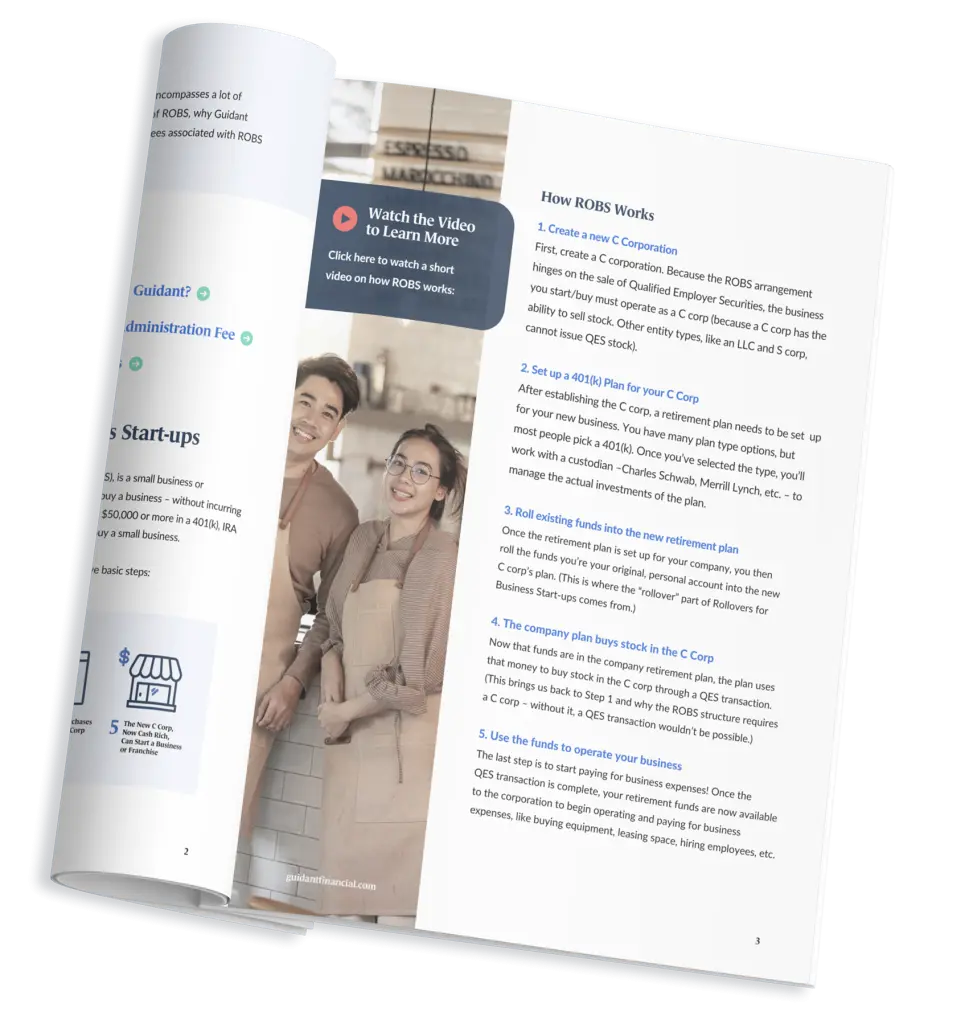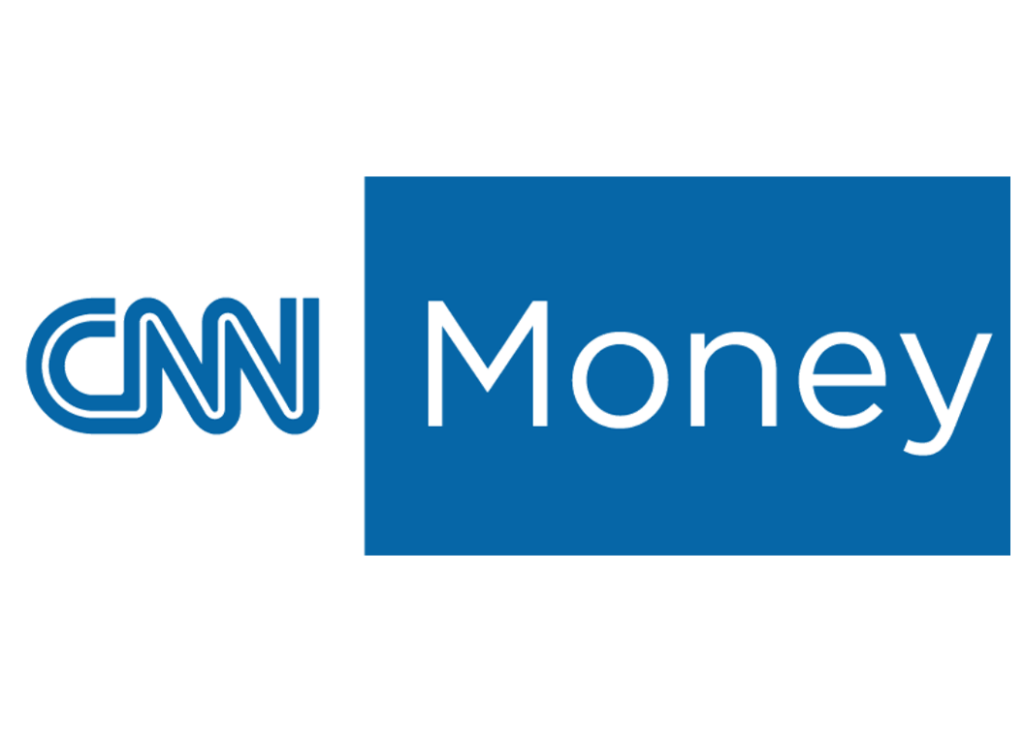Jeff Toren had spent his entire corporate career in engineer software sales and had worked his way up the corporate ladder to a VP of Sales position. Realizing he was at a crossroads where he could stay in his corporate career or start his own business, he chose to invest in himself and bought two separate franchises using his retirement funds: a Kitchen Tune-Up franchise and an iLoveKickboxing franchise.
Guidant CEO and Co-founder David Nilssen recently chatted with Jeff to learn more about why he chose to start two franchises, how being a franchise entrepreneur is treating him so far and some of the biggest surprises about franchise ownership.
No time for a video? Here’s the transcript:
David: All right this is David Nilssen with Guidant Financial I am on the phone with Jeff Toren from Pennsylvania. Jeff thanks for being on the call today.
Jeff: Thank you, David.
David: So, maybe we can just jump straight in and tell us a little bit about your business, what is it that you do?
Jeff: Okay so, our company is called A Happy Life Inc and we are franchise entrepreneur. We have 2 product lines that we’re currently deploying. One is called Kitchen Tune-Up, we started that about over a year ago as the first business.
The 2nd one, we started around the same time but we were just about to open our first location called franchise called iLoveKickboxing. So, we had purchased 5 studio development rights to 5 area locations and so in January we’ll be opening our first.
David: Congratulations that’s a unique story. I talk to people all the time about opening a franchise and how exciting and yet overwhelming that can be. Those who do two at the same time in different industries how did that come about?
Jeff: I might be crazy. Well you know, it was kind of during the path as I was kind of you know changing my career path from an enterprise software sales career I decided to take the entrepreneurial path and go down the route of a franchise.
I had worked with a franchise consultant, actually quite a few and they presented a lot of businesses I probably looked at 50 to 75 business. The two different business paths were kind of a matter of strategy for me. The first one the Kitchen Tune-Up business is a very hands on consuming business that’s really I’m running the day to day I am in the weeds of that business. It’s a great business, it’s a great model but it’s one that’s you are not hiring outside management to run it for you.
That’s great because I was looking for something to dig my teeth into. During that journey of looking at business we run into iLoveKickboxing and that model is perfect for a semi-absentee business model. So, that business we’ve already got a manager in place and that’s going to be fully staffed.
So, we’re obviously involved in the build out and the hiring other people. But day to day going forward once we are up and running it should take rather a few hours a week, rather than the kitchen business is a lot more than that. So, it’s more of kind of being able to do more but not basically take all my bandwidth away. So, it’s was really strategic kind of looking at different paths that way.
David: So you said you worked with a franchise coach, when you first started out in this process did you ever think to yourself I want to own a Kitchen Tune-Up business and a karate studio or kickboxing studio?
Jeff: God, no.
David: What was it about those concepts that kind of had you leaning in the process?
Jeff: Yeah that’s really it is funny because everyone asks that, like neither those are kind of in, if you knew me you’re like oh! sure I could see you getting in a kickboxing studio or even something that’s like a contracting type business. So, it really is the kitchen business grabbed me from the way the model is set up. So first off it had a good strong component that fit my sales and marketing skills. That’s really beyond the contracting and the other skills.
The most important part is sales and marketing. So, for me that was great, it also had a very, a modest startup capital needed, it didn’t need to open a location. Really I needed to, right from square one I just needed to start a marketing budget. Yeah we’ve gotten vehicles and yeah I’ve hired, I have staff that’s built out now. But from day I could start with almost no outside capital. That franchise even had financing offer for 75% of the franchise fee.
So, it was really a nice modern, I actually ended up, I had budgeted double what I ended up putting in. One because I launched so quickly and I kept that capital for the other business which is capital intensive, so that was great, that what’s worked there.
David: You brought up the topic of financing and that is obviously something that I’m keenly interested in being in this business. How did you go about kind of thinking it through how you’d finance these businesses? I know the other, one of the franchise systems had a financing in-house financing option. But how did you go about that process? I mean ultimately obviously you choose to work with our organization what was it about Guidant that had you make that decision.
Jeff: Sure so, first off I mean honestly I looked at all options of okay we’re going to start let’s say the kitchen business. That we probably could have financed straight up from our own capabilities.
The iLoveKickboxing being a retail store front concept has a much bigger up front capital investment as well as their franchise feel is not something you can finance. So, I mean we purchased ended up getting 5 development rights at 5 locations for iLoveKickboxing.
The first studio has a lot of the build out in all the operating expenses and everything else. So, it’s quite a bit of capital to start that one. So, I had the option obviously you know the kitchen we didn’t need you. But when we got into the other it was a much bigger thing.
Now luckily after 20 plus year in corporate career, both my wife and I we had healthy 401(k)s saved up from a lot of work. So, we kind of looked at either we can go get into debt look for small business loans or whatever else we have perfect credits.
So, getting capitals is not the problem but the thought of opening up and getting a huge amount of debt didn’t feel so comforting. So, yeah well it doesn’t feel great to risk your 401(k) but what if we got debt it’s the same risk. Because we’re not going to default on anything, we are not that kind of people. So, if this doesn’t work out we’re still stuck you know large loans that we’re eventually going to figure out.
So, why not risk our own money and our future on ourselves instead of some unknown company in the stock market. So, we looked at Guidant, we looked at quite a few of your competitors, like the staff that we work with on your sales team were very knowledgeable.
The process you guys had seemed to be a lot cleaner, a lot less fees and overhead and just, at the end of the day we were just were comfortable with Guidant and all the way in which you guys worked. That really, you guys you’ll beat up the other guys really, just really on your team that worked with me day to day.
David: Well I appreciate the good feedback. One thing I’d love to hear about too is the you said your wife had spent some time in corporate America is now part of these businesses as well.
Jeff: Well not yet. She is still known as the cooperate job, luckily one of us was able to keep that light on. Our goal is as we open more locations of iLoveKickboxing that we will free her from the obligation to have the corporate responsibility.
Maybe she stays, maybe she doesn’t but we’ll give her that option when we have the ability to do it. Right now my immediate goal is to make up for what I’ve left behind. But once we get multiple locations hopefully our dream is for her to join us.
David: Great, well I hope I didn’t step in bear trap by asking that question on co-owning.
Jeff: She’ll watch it and she’ll agree.
David: Okay, so maybe you can take me back even before bought the businesses you said you spent time did you say software sales?
Jeff: Yes, I was in enterprise software sales for my whole career.
David: Okay, so what was the real motivation for leaving that and kind of making the jump into your own business?
Jeff: So, you reach, I had reached a lot of my career goals. I had reached the VP of sales position in a smaller company. After a couple of year one thing led to another just ended up not being the right, it just didn’t work out. So, I had a decision there to kind of keep down the path I’ve been on my whole career and find a new position.
I kind of looked at it I’m not old I’m not young, I’m kind in the middle I am in early 40’s. Just kind of looking forward and looking at 10 years out, 15 years out. Knowing that outside quota carrying sales has a, you have shelf life where eventually you’re going to run out of that steam.
Because I was my last, before that position I was an IBM big corporate America, big corporate sales, and a lot of pressure clearly quota driven. I have always known it’s not something you can do forever.
I’ve done quite well, made a great living but I was seeing the future clock on me. Deciding either I’m going to keep doing that and let’s say 5, 10 years from now be at a crossroads that I won’t be able to change.
Or now when I still have a limited energy and motivation I can take advantage of that and build my own business over the next 10, 15 years. 10 years from now it’ll be too late probably. So, I’m thinking of advantaging myself right now when I still have it.
David: Well you know it’s funny so, first of all I just want to clarify when you are in your early 40’s that’s still young.
Jeff: That’s exactly right. I was looking ahead, I was looking at 50’s and 60’s and going oh no then it’s too late. So, I’m still, I’m looking forward I’m a futurist.
David: You know it’s funny that I would say this is a more of an art than a science comment. But I believe approximately like 30% of our clients open a business after 55 years old. So, even as we’re living longer and you know working longer people are you know choosing entrepreneurship even in the later stages of their career.
So, okay so you’ve open up one of the business you are on pace to open up the second, so far what has been like the biggest surprise? and this could be positive or you know a growth opportunity?
Jeff: Sure. I’d say that the biggest surprise I’ve found is actually positive well I got both. So, positive is the kitchen, you know our first business is taken off very strong. We set really big goals, or I set big goals for myself being that I have you know a lifestyle of history and earning that I had to start to get to.
We’ve already hit our goal for the year. So, that surprised me that you know while this has been a huge mountain and there is a lot I have done and there is still a lot to be done it’s you know that it’s possible. That we’re bearing the fruits of a lot of hard work.
You know when you follow a franchise model you know everyone is you know it’s real. You know yeah you follow the model you listen to a good franchise pick the right one.
You can have quick success, so that was the first surprise that you know we found pretty quickly in the beginning. You know we opened our doors started the ads and before you knew it we were you know getting business, and that success has carried all the way through the year.
The downside of that which I don’t feel it as a downside is you know to do this and but a business on your shoulder and yeah it’s kind of crazy to do two because right now I am launching a new one, while I am still in the midst of a very fast growing other business.
The buck does stop with you. I am definitely working harder than I have ever worked in my life by order over a magnitude of 200 % at least, but I love it. I mean I wouldn’t give it up, I don’t care that I am making less right now, because I know in the future, you know I’ll catch up and far surpass where I have ever been.
It’s for myself and my family and it’s like that feeling is nothing I couldn’t even imagine how great it was going to feel. The thought of ever going back to the other side, I am going to call it, is not even an option. So, it’s like point in overturn. Once you knew you did it and you put your 401K on the line, that was my future and so that future had to be now. So, it’s scary and exciting at the same time
David: Yeah you definitely put your money where your mouth is at.
Jeff: That’s right.
David: But you know it’s funny I have heard this quote a million times and you’ve probably heard it too that business owner entrepreneurs, they’ll work 80 hours a week just to avoid working 40 and it’s sort of true. So, well maybe you know and I appreciate you spending the time with me to share you know your process of deciding and then things you are learning as you.
Maybe as the last thing you could help us you know provide a word of wisdom for anyone that’s thinking about buying a business or starting a franchise or even opening up their own enterprise. What advice would you give them?
Jeff: I have a couple of things and actually I share this with, in the Kitchen Tune-Up franchise I have been a reference for a lot of new franchisee because our success is a good example for them. There is a couple of things one you know you got to do your due diligence you know find the right franchise that really checks your boxes whatever those are. That you are going to feel passionate and joy about, that’s the first thing.
The second is on resources two sides of those resources I think are equally important. One is making sure you have the resources to feed that business. Do the right marketing, follow the advice and the budget that that franchise sets for you. Don’t think you are going to do it with less plan for more.
Then on the second part of those resources is make sure you have thought about your family resources. It’s great if you are feeding your business , but if you are so stressed you can’t keep the lights on in your house or pay your mortgage or whatever that is, put food on the table, then you are going to make bad decisions for your business.
That stress will come through on you won’t be able to find employees, you won’t be able to find customers, you need to. So I am blessed, my wife has a good job, and she is you know, it’s not, she is doing a great job and she is very very talented. At the same time she is able to keep the lights on for us so I can build this business for the family.
Without that I think that anyone who tries to do this and start a business because they lost their job and they need to make that income right now is going to create too much pressure on themselves that will, not to say it’s not possible but it will create a very challenging situation to build a business from you know in my view.
So, that’s I think the two couple other pieces of advices that I had heard before I started from some, well actually one of my franchise consultants said and wrote a good book about this, that kind of help guide me. That’s been great advice to me that I could feel that how different that would be if I didn’t follow that.
David: Yeah it’s funny I can really appreciate that because I think you know owning a business is hard enough, it’s you know it’s something that you don’t enjoy and don’t want to go and work in or with or for that could be really demotivating over time. So completely agree with that.
Then the other thing we say this all the time here, is prepare for a longer runway, whether it’s marketing or expenses or even for building up revenues, give yourself a longer runway just so that you aren’t you know stressing out day to day, and you can work that plan and work that plan right.
Jeff: That’s right.
David: I love and agree with everything you said there. Well Jeff I don’t want to take too much of your time, I really appreciate you spending some time with us today so thanks again for being with us.
Jeff: My pleasure David.
















